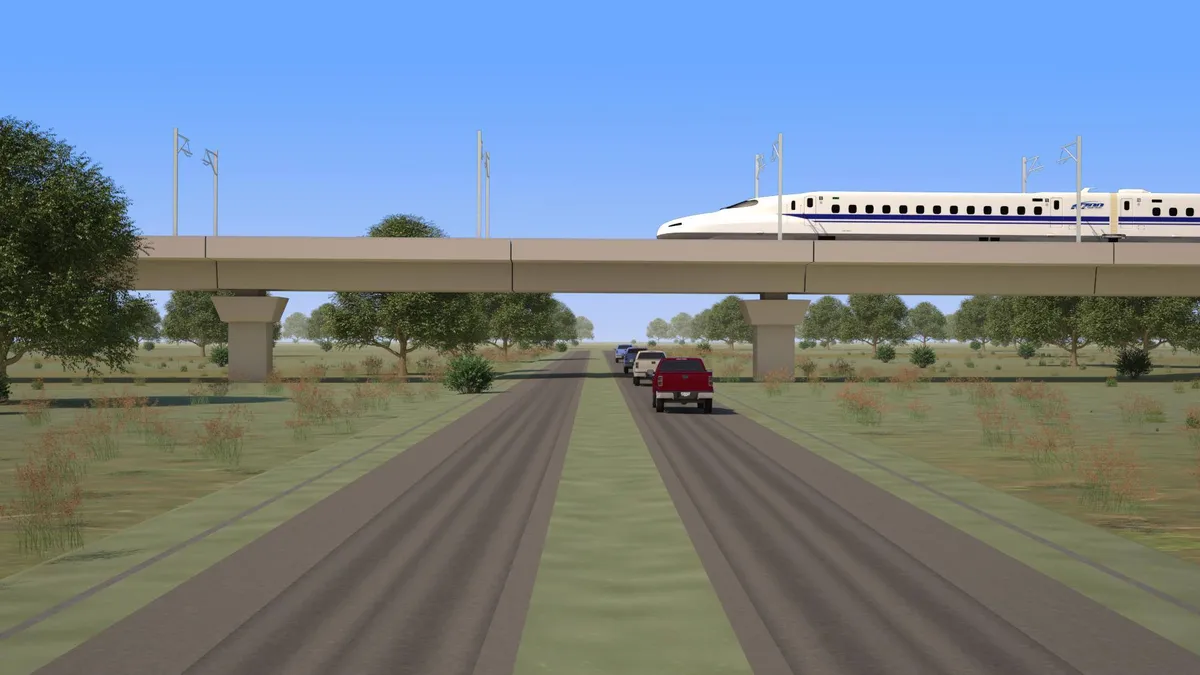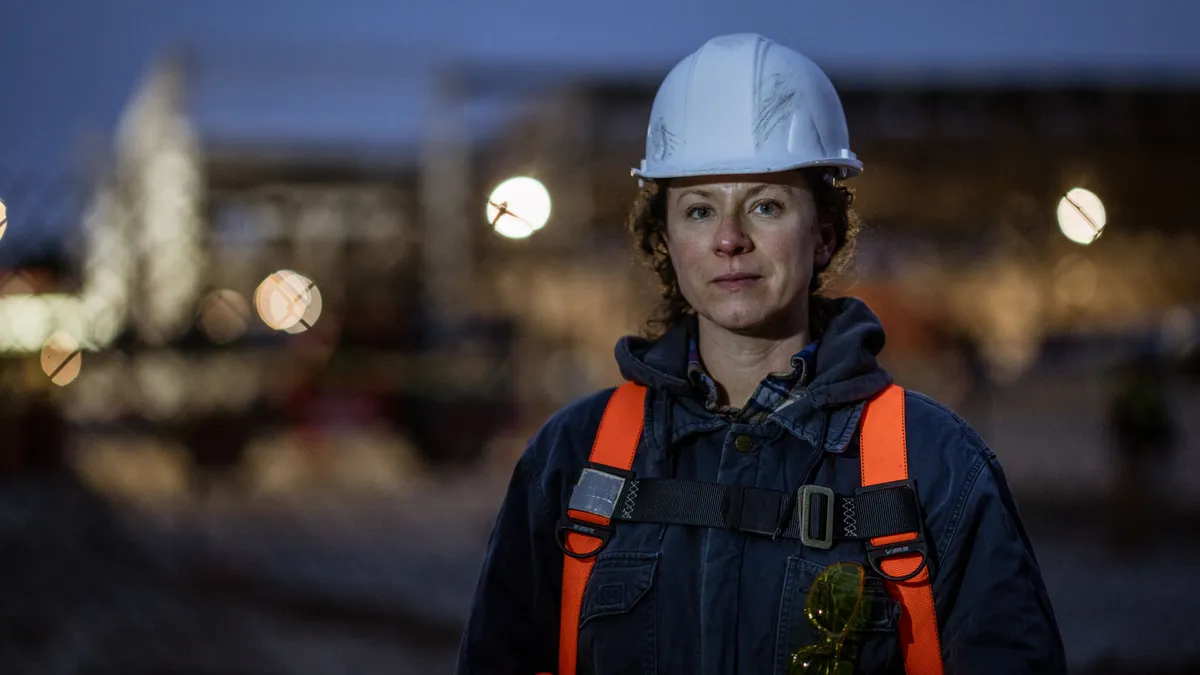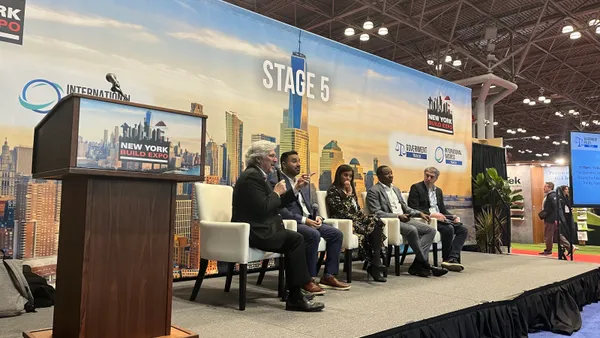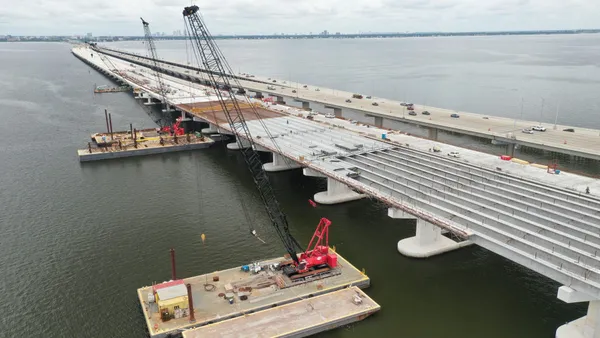Dive Brief:
- Texas Central has signed an early contractor involvement (ECI) agreement with Mass. Electric Construction, a subsidiary of Kiewit Corp., for its proposed $20 billion bullet train between Dallas and Houston. Texas Central and Mass. Electric should have a signed specialty systems construction contract in hand by the end of this year.
- As part of Mass. Electric's ECI contract, the company will help develop a scope of work and costs as well as assist in formulating an execution plan and schedule, for the installation of core rail systems, equipment and critical systems, which include electrical power, signaling and communications. Mass. Electric's core system installation will lay the groundwork for the N700S Shinkansen rail technology that Texas Central plans to use.
- The train could begin construction as early as next year pending federal approval of the project, Holly Reed, managing director of external affairs at Texas Central, told Construction Dive. The construction process itself is expected to take five to six years.
Dive Insight:
Mass. Electric, which has participated in $4 billion worth of transportation projects, also has experience working on rail projects in Texas, e.g. Phase 2 of the Houston LRT and the DART Green Line in Dallas. Mass. Electric's construction contract is expected to include the installation of electrical supply and distribution systems that will run the train. The work will also include the installation of signaling, control and communications systems.
This bullet train project, Reed said, is on the national stage as well as under global scrutiny. In fact, she said that is one of the reasons the project has been able to attract such experienced partners.
"Mass. Electric," she said, "is the latest of those companies that has the expertise and the scale to work on a project of this magnitude."
The company has worked with various types of rail technologies, she added, and is the ideal candidate to partner on Texas Central's "total systems approach," where the focus is on "safety and efficiency."
In September, Texas Central announced that it had signed a design-build agreement for about $14 billion of work with the joint venture of Italian civil engineering contractor Salini Impregilo and The Lane Construction Corp., a U.S. division of Salini. The JV had already been working on early engineering and preconstruction tasks. Work under that contract also includes the design and construction of viaducts and embankments, installation of the track system and alignment and construction of maintenance and equipment facilities.
Another likely plus for project is the fact that it's privately funded.
"When you're an investor-led project, it puts discipline around every step that you take," Reed said. At least on the Texas Central project, she said, decisions are data-driven and must be efficient and safe, as well as schedule and cost-conscious.
Another privately-funded rail project that is gaining traction is Virgin Trains USA's route between Southern California and Las Vegas. Earlier this month, the California Infrastructure and Economic Development Bank (IBank) approved a $3.2 billion tax-exempt, fixed-rate revenue bond issuance to help Virgin's affiliate, DesertXpress Enterprises LLC, pay for the California portion of a high-speed train from Victorville, California, to Las Vegas.
Texas Central's land acquisition for the project has been a controversial element of planning, and, according to Reed, that process is still underway.
"We continue to meet with landowners all along the alignment, answering questions and working on agreements," Reed said. "It's going very well. Obviously, it's one of the other critical path items that we focus on intently."
But, overall things are coming together for what could a game-changer for those who travel between the two Texas metros.
"What I think people are finally seeing in this series of announcements over the last couple of years is that we have had a strategic focus on putting all of the critical path pieces together to be ready to go into construction as soon as get federal approval," she said. "Having an integrated approach — people can now see that is a benefit going forward."













